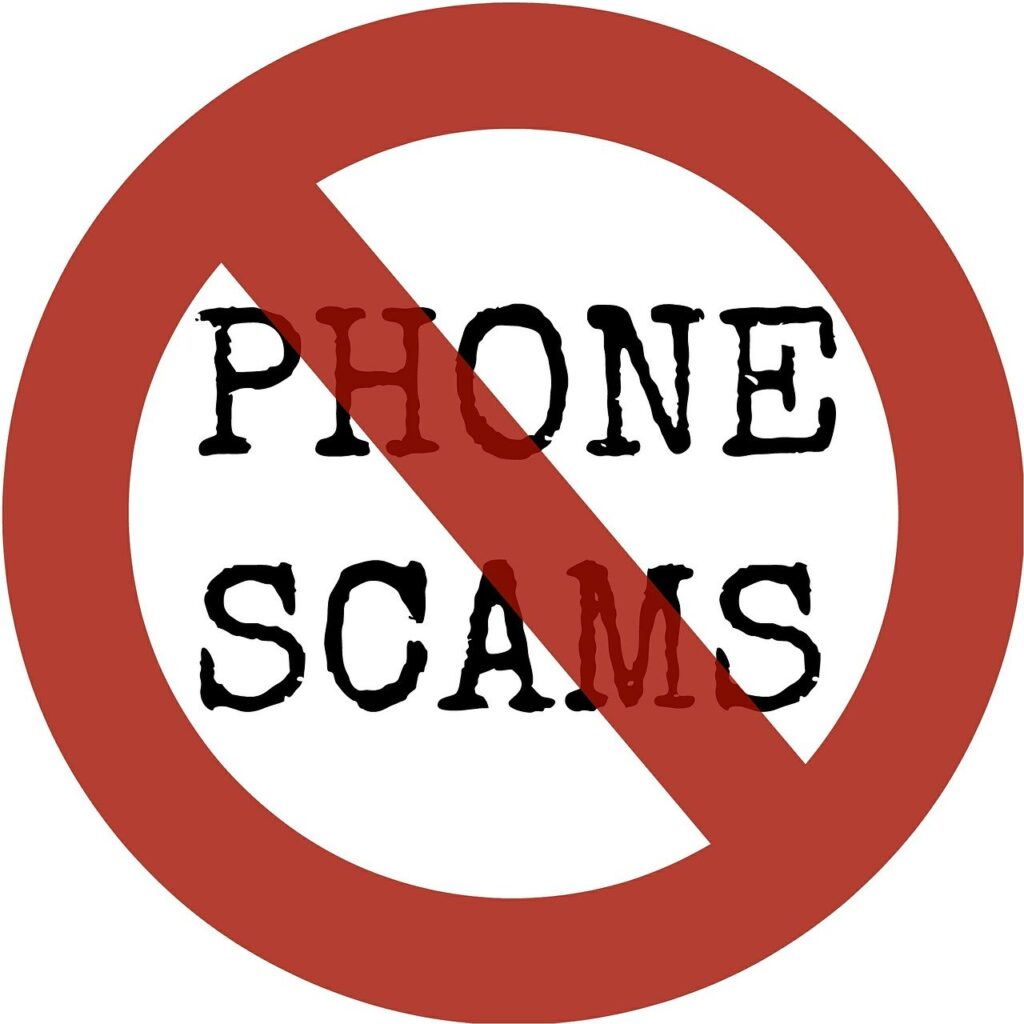
Phone scams tend to involve similar threats or promises, although they come in many shapes and forms. Ultimately, you’re asked to pay something and thankfully, there are ways to avoid them.
If someone who claims to represent a company calls and seems suspicious, Unmask recommends doing an online search on the company. Google its name or the name of its product or service, together with the word “scam,” “complaint,” or “review.” It’s possible to search for phone numbers to see if an organization has been reported as a scam by victims.
Tips to Recognize a Phone Scam
Sometimes, scammers will call “on behalf of” a government agency or law enforcement and threaten to arrest you. They might insist you’ll be fined, arrested, or deported unless you make good on unpaid debt or taxes immediately. A real government agency won’t call and make threats. The scammer just wants to scare you and make you give them money.
You Didn’t Win Anything
The scammer might say you won the lottery or were selected to win a prize. The trick is that you have to pay something for the prize. Does that make it a prize?
They Want You to Take Action NOW
A legitimate business will rarely demand you decide on their offer at once. If the caller is not giving you time to think it over before committing, it is probably a scam. Don’t fall for things like “one-time offer, expires today.”
Agencies Won’t Ask for Personal Data Over the Phone
Even if someone says they’re with the IRS or the SSA, don’t give out personal details like your Social Security number.
Don’t Send Cash
The caller might ask you to wire money, use a money transfer app, or put money on a cash reload card, a prepaid card, or a gift card. Doing this is never justified. All these methods of payment make it hard to get your money back, if not impossible.
Robocalls are Illegal
Companies need consumers’ written permission to make robocalls. If you haven’t bought anything from a company before and your number is listed on the National Do Not Call Registry, no sales teams should be calling you. The company is calling you illegally, so it’s very likely to be a scam.
Learn to Detect Imposters
Scammers will pretend to be a long-lost friend, a relative, a charity, or a business you’re familiar with. Never provide personal data or send money in response to a random request, whether by phone, SMS, or email.
Be Wary of Promises
The caller might ask you to pay for a job, for mortgage help, for a loan and credit offers, or debt relief upfront. If you do this, they’ll disappear with the money.
Don’t Trust Caller ID
You aren’t always seeing someone’s real name and number on your caller ID. With the latest apps, this information is very easy to fake. Simply hang up if someone asks for personal data or money. Return the call to a number you’re sure is real if you believe the caller is being honest.
Never Deposit Checks
It can take banks weeks to detect fake checks. This becomes a problem because banks are obligated to make the money from deposited checks available in a few days. You’ll have to repay the bank if it turns out you deposited a fake check.
Speak with Someone You Trust
Speak to someone you trust before providing personal information or funds. Scammers want people to make decisions without thinking things over. If they start making threats, that’s a sure sign. Consult an expert, do an online search, and take the time to check their story out.
Don’t Trust Free Trials
A good dose of skepticism is also healthy where free trials are concerned. Some companies will use these to sign customers up for services or goods and send them monthly bills until they cancel. Make sure you’ve familiarized yourself with the company’s cancellation policy and done your research. Don’t pay your bills before you’ve looked at your monthly statement. They will sneak in additional charges sometimes.
Report Recorded Sales Pitches to the FTC
Recorded pitches are illegal and often involve fake products. You might hear something like “press # to be removed from the list.” Don’t fall for it – it’ll only lead to further calls. The FTC has free scam alerts at ftc.gov/scams.
Also Read: What is Phishing, Spear Phishing, and Whaling?
No Phone Scams image by Paco Silva from Pixabay.